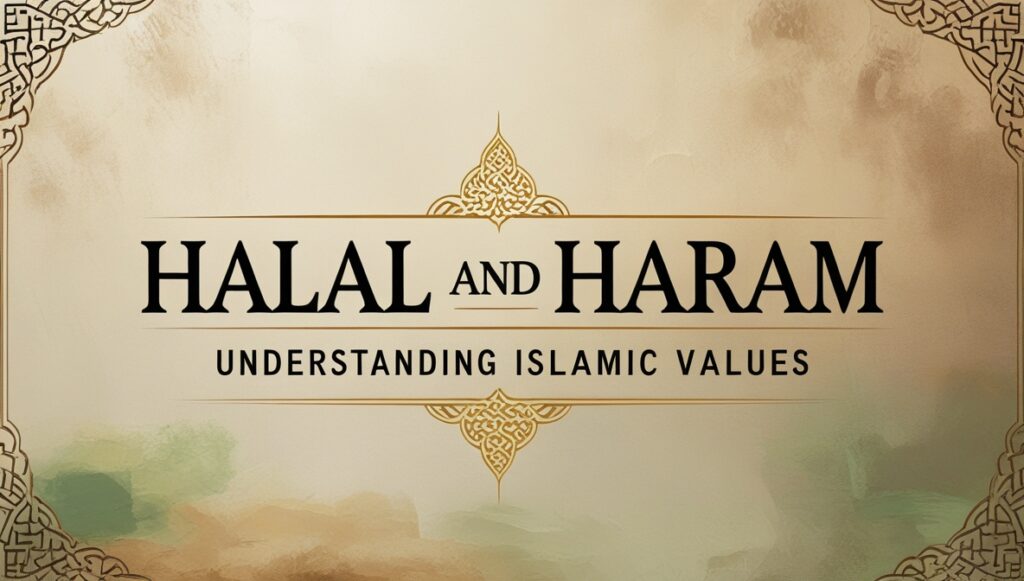Halal and Haram are two important words in Islam that guide the daily life of Muslims. These terms are not only about food but also about actions, behavior, and choices. Halal means something that is allowed and good in Islam. Haram means something that is forbidden and harmful. Together, they build a clear system that helps Muslims live with faith, discipline, and respect. Understanding Halal and Haram is not only about religion but also about building a lifestyle of balance, kindness, and responsibility.
The Meaning of Halal
Halal is everything that is lawful according to Islamic teachings. It can include food, business, dress, or even how people speak. For example, eating meat from animals that are properly slaughtered is Halal. Earning money through honest work is Halal. Speaking truth and being kind to people are also Halal. In simple words, Halal brings goodness to life and helps people stay close to Allah.
The Meaning of Haram
Haram is the opposite of Halal. It is anything that Allah has forbidden. Examples of Haram include drinking alcohol, stealing, lying, or eating pork. Doing Haram actions brings harm not only to the person but also to society. It breaks trust, damages health, and creates problems in relationships. Avoiding Haram is a way to protect both body and soul.
Why Halal and Haram Matter
Halal and Haram matter because they provide Muslims with a clear guide to what is right and what is wrong. In a world with many choices, people can get confused about what is good for them. By following these rules, Muslims can make better decisions. These values are not meant to limit freedom but to protect people from harm and guide them to a better life.
Halal and Haram in Food
Food is one of the most common areas where Halal and Haram are discussed. Halal food includes fruits, vegetables, grains, seafood, and meat prepared in the Islamic way. Haram food includes pork, animals that die without slaughter, and any food or drink with alcohol. For Muslims, eating Halal food is more than nutrition—it is an act of worship. It shows obedience to Allah and respect for the body as a trust.
Halal and Haram in Work and Money
Earning money in an honest way is very important in Islam. Halal income comes from jobs and businesses that are fair and transparent. Working hard, paying employees fairly, and avoiding cheating are all part of Halal earnings. Haram money, on the other hand, comes from gambling, interest-based loans, or dishonest trade. A Halal income not only blesses the person but also brings peace to their family.
Halal and Haram in Behavior
Beyond food and money, Halal and Haram also guide behavior. Speaking the truth, respecting parents, helping neighbors, and keeping promises are all Halal actions. On the other hand, lying, gossiping, hurting others, and being ungrateful are Haram behaviors. This shows that Islamic values are not just about rules but about building a caring and respectful community.
The Balance Between Halal and Haram
One of the beautiful things about Islam is balance. Halal and Haram create balance in life. They stop people from harming themselves and others while encouraging them to do good. When people follow Halal, they live with honesty, peace, and health. When they avoid Haram, they stay safe from many dangers. This balance makes life meaningful and rewarding.
Misunderstandings About Halal and Haram
Some people think Halal and Haram are only about food rules. Others may believe they are too strict or difficult. In reality, these values are wide and practical. They cover every part of life, from how people eat and dress to how they treat others. They are not made to punish but to protect. Understanding them with an open heart shows that they are a gift, not a burden.
Living by Islamic Values
Following both of these is not always easy, especially in today’s fast-moving world. Temptations and distractions are everywhere. However, Muslims can stay strong by learning more, asking for guidance, and remembering that every small choice matters. Living by these values is a journey of faith. Each step toward Halal brings blessings and each step away from Haram brings safety.
Finally!
Halal and Haram are not just rules but a lifestyle that reflects Islamic values. They guide what people eat, how they earn, how they behave, and how they live with others. By choosing Halal and avoiding Haram, Muslims show their love for Allah and their care for humanity. These values bring peace to the heart and order to society.
If you want to learn more about Islamic values and how to apply them in daily life, visit NAIF Center. It is a place where knowledge and faith come together to help people grow and live with purpose.

